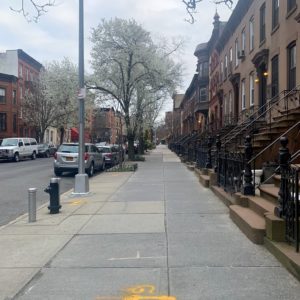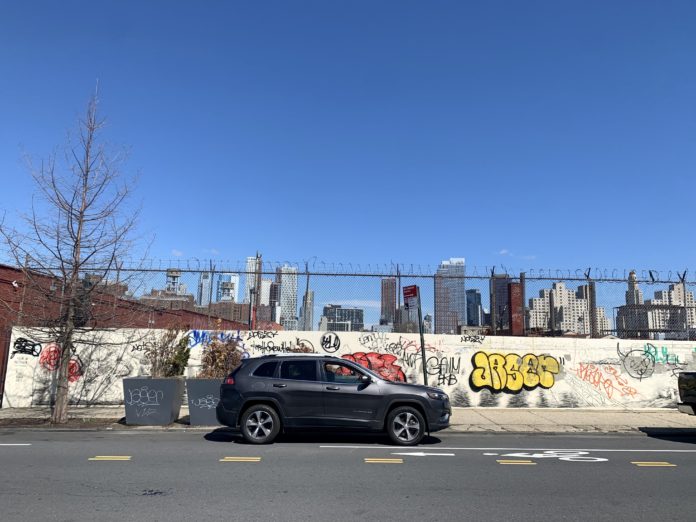As part of The Occidental’s COVID-19 coverage, we will be running a series titled “Letters from” written by staff writers, editors and Occidental students. These letters aim to document the experience and insights of Occidental students as they adjust to new circumstances. If you are interested in contributing to the series, please send an email to brewere@oxy.edu or kheinze@oxy.edu.
In late March, early on in quarantine, I walked two miles from my mom’s house to my dad’s house with my guitar and my backpack, full of everything for the week. The deli where I bought sour cream chips and iced coffees before high school was shuttered. A woman jogging circled me with a 10-foot perimeter. There was a broken mirror in the middle of the street that cars had been running over for days.
Everything was quiet in the city that never sleeps. Everyone who walked past me was no longer a fellow city-comrade, but a potential carrier.
As I passed the Gowanus Canal, I saw the Manhattan skyline. I realized how physically close Brooklyn was to Manhattan. In Los Angeles, it would be a five-minute drive.
For the first time in my life, I wished I lived somewhere else.
My friend at New York University told me — two days before Occidental announced it would continue the rest of the semester online — that she would be self-isolating.
“Already?” I asked as she FaceTimed me with a mask on.
“You don’t know how bad it is here yet,” she replied.
When I landed at John F. Kennedy International Airport and sped through the taxi line, which usually takes me 45 minutes, I started to cry. The driver told me I was his first customer of the day.
Now, a month into self-quarantine, things are dire. As of April 19, there had been over 240,000 confirmed cases of coronavirus in the state with more unaccounted for. The week of April 13, the lowest number of coronavirus-related deaths reported in a single day was still 560. I hear nothing but ambulances all day.

When I arrived at Occidental, the first thing I told people was that I was from New York City. I said this partly because it was necessary for our icebreaker games, and partly because I was immensely proud of it.
I had a very different childhood from the rest of America. My dad always referred to New York City as an “international city.” I love the idea of living in an epicenter of culture, art, social justice and food. My family and I traded backyards and houses for the subway and pizza. I never worried about learning to drive because I could walk to everything I needed: sushi, the dentist, the post office, Thai food, pharmacies, donut stores, nail salons — anything.
These days, I find myself craving McMansions in the suburbs with two fridges and functioning washing machines in their own little room in the corner of the house. Before quarantine, we did all our laundry at laundromats because my mother did not have a working washing machine.
As my brothers do work for online school and my mom continues to work from her laptop, we find ourselves on top of each other all the time. The only surface in the house is our dining room table.
The pride and allure I felt sharing that I was from New York City now feels sad. The city doesn’t feel like a beautiful mosh pit with every person under the sun, it feels like a ticking time bomb.
Some of my affluent peers have been escaping to their country houses, while most of the prisoners at Rikers Island are likely to become infected. Gov. Andrew Cuomo has had to scream during press conferences, begging for federal help. The Javits Center, where I once attended RuPaul’s DragCon, is now a hospital.
As great as we might be, the incredible discrepancies within the city are being exposed. Black, brown and low-income communities in the outer boroughs are suffering while other families order Seamless and walk their dogs.
The city that never sleeps is finally sleeping, and I am scared that we will not awake from this nightmare for a very, very long time.
![]()































